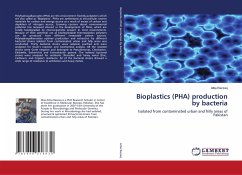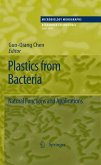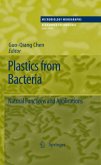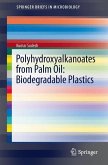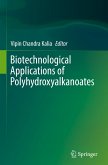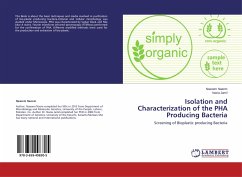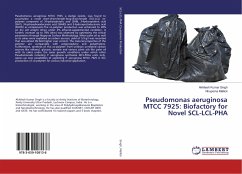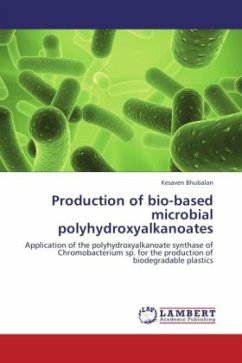Polyhydroxyalkanoates (PHA) are the environment friendly polyesters which are also called as 'Bioplastics'. PHAs are synthesized as intracellular reserve materials for carbon and energy source as a result of excess of carbon and depletion of nitrogen source. Growing concern about environmental pollution has renewed interest in the development of PHAs, which are totally biodegraded by microorganisms present in most environments. Because of their potential use as biodegradable thermoplastics polymers can be produced from different renewable carbon sources. Polyhydroxyalkanoates optimal production and extraction by different bacterial strains isolated from contaminated urban and hilly areas was conducted. Thirty bacterial strains were isolated, purified and were analyzed for Gram's reaction and biochemical analysis. All the isolated strains were Gram negative and belonged to Pseudomonas, Citrobacter, Klebsiella, Escherichia and Enterobacter genera. The isolated bacterial strains were analyzed for antibiotic (Penicillin) and heavy metal (Zinc, Cadmium, and Copper) resistance. All of the bacterial strains showed a wide range of resistance to antibiotics and heavy metals.
Bitte wählen Sie Ihr Anliegen aus.
Rechnungen
Retourenschein anfordern
Bestellstatus
Storno

